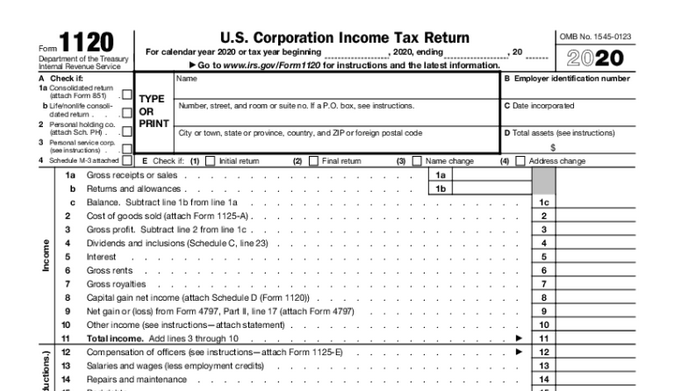A large number of unprofitable startups are going to have a surprise tax bill on April 18. A little discussed provision in the Tax Cuts and Jobs Act (TCJA) changes how tax law treats research and development expenses, dramatically reducing how cash expenses are accounted for – pushing many money losing startups into owing taxes. Ernst and Young estimates that this will reduce U.S.-based spending on R&D by $4.1 billion in the first few years.
Many VC backed startups will owe taxes – even though they are losing money
My firm works with 750+ venture funded startups and our data suggests that 10% to 20% of revenue generating startups that are losing money will end up showing positive net income on their tax return – thus having to pay federal taxes! This will have a disproportionate impact on startups that are generating revenue, yet investing heavily in research and development. (We analyzed money losing, VC-backed startups generating over $1 million in revenue to get the 10% to 20% estimate.)
The TCJA forces companies to capitalize their R&D expenses, recognizing them over a 5-year schedule. The way the calculation will work is even more punitive in the first year, when only one-tenth of the first year’s R&D will be counted. It’s even worse for a company that does some innovation outside of the U.S., as the amount that can be recognized is even lower. Since many VC-backed startups invest heavily in R&D, many startups that are generating revenue will be caught in a situation where their cash expenses are meaningfully higher than their tax expenses.
Let’s take a look at how this might impact a hypothetical startup aggressively investing in R&D. Imagine a startup generating $2 million in revenue, spending $500k on non-R&D expenses, and another $5 million on R&D expenses. This company is losing $3.5 million a year – a healthy burn rate for a VC backed company. Ordinarily they would not owe any taxes, since they have negative net income.
Of course, the TCJA changes that. In 2022, this hypothetical company would only be able to deduct one tenth of their $5 million in R&D expenses – that’s only $500,000. That means that, for tax purposes, they will generate $1 million in pre-tax profit, and will end up owing over $200,000 in federal taxes. That’s enough for them to hire one additional software engineer! Assuming the company’s financials are stable the subsequent year (not a good assumption for a VC-backed startup, but good enough for this exercise), the startup deducts one fifth of their R&D expenses, $1 million, leaving them with $500,000 in taxable income and just over a $100,000 tax bill.
The most exposed category of startups to this change are largely software businesses ranging in size from 10 to 1,000 employees. With the recent slowdown in venture funding and the looming recessionary environment, these surprise tax bills could not be coming at a worse time. These types of startups tend to lead on many of the tech innovations in development right now, providing a disproportionate amount of the competitive advantage to the U.S. There are thousands of revenue-generating startups heavily investing in R&D in the U.S. who will now have to consider how their research spending impacts their tax position.
Does Congress want to promote innovation – or tax it?
Recently Congress passed the Inflation Reduction Act, which doubled the R&D tax credit, in an attempt to promote innovation in the United States. The R&D tax credit is a powerful incentive that helps money-losing startups spend on U.S.-based research. But the TCJA clearly moves against this incentive – Ernst and Young estimates that the TCJA will reduce employment in the US in R&D by over 23,000 per year.
Moreover, according to the Information Technology and Innovation Foundation (ITIF), the U.S. is now one of only a few countries that doesn’t allow immediate expensing for R&D costs. As of 2020, the ITIF noted that tax support for research and development in the U.S. ranked 24th out of a comparison group of 34 countries in the Organization for Economic Cooperation and Development (OECD), along with China, Russia, India, and Brazil. The ITIF notes that this new R&D amortization rule (assuming that states follow the federal government’s lead) will bring the US ranking down to 32 out of 34 countries.
There are currently Senate and House bills with significant bipartisan support that would eliminate the R&D amortization requirement. If Congress really wants to promote innovative research, canceling the R&D capitalization rule is a good first step.
====
Vanessa Kruze, CPA, is the founder and CEO Kruze Consulting, providing startup CFO consulting, including accounting, tax and HR services, to startups in San Francisco, Los Angeles, and New York City. Prior to establishing her firm in 2012, Vanessa began her career with Deloitte Tax and is a University of San Francisco alum.
Thanks for reading CPA Practice Advisor!
Subscribe Already registered? Log In
Need more information? Read the FAQs
Tags: Accounting, Income Taxes




